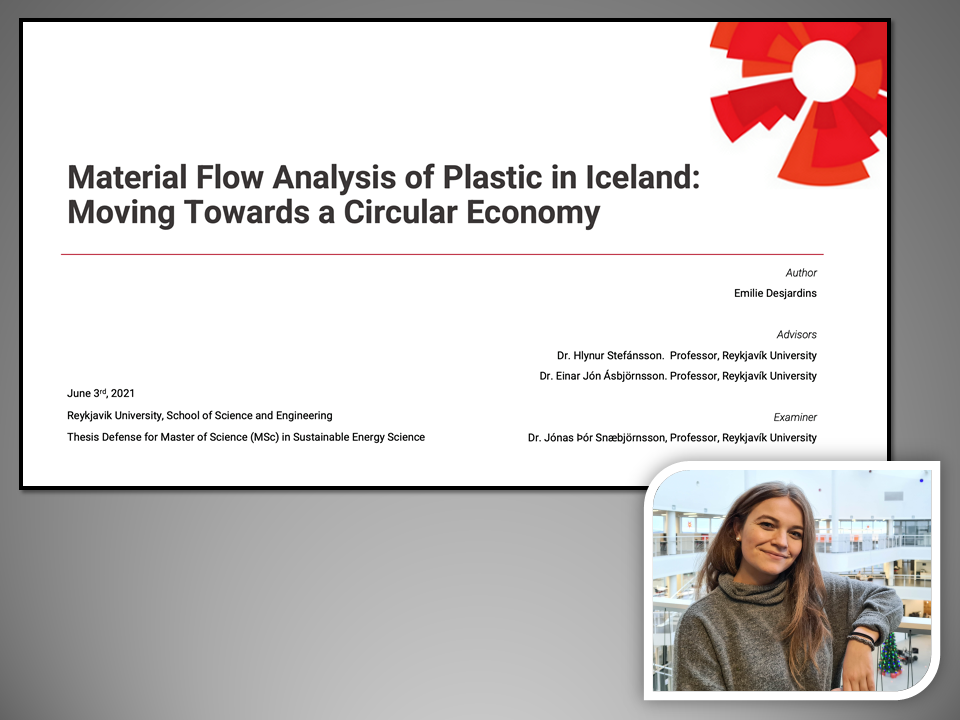MSc Thesis: Material Flow Analysis of Plastic in Iceland - Moving Towards a Circular Economy
REYKJAVIK, June 3 - MSc in Sustainable Energy Engineering candidate, Emilie Desjardins , successfully defended her master's thesis where she performed a material flow analysis of plastic in Iceland, moving towards a circular economy. Emilie's work was supervised by Dr. Einar Jón Ásbjörnsson from Reykjavik University and Dr. Hlynur Stefánsson from Reykjavik University. With examination by Dr. Jónas Þór Snæbjörnsson from Reykjavik University.
 Emilie's research thesis analyzes the flow of plastic materials in Iceland and highlights changes needed to move the current system towards a more circular economy . She explained how circular economies rely on using a material to its fullest potential, without sending it to landfill, thereby reducing the need for resource extraction to produce new materials. Emilie pointed out that a key factor in creating a circular economy is to ensure proper recycling and reuse strategies are in place, it also means that recycling efforts must be done domestically using only renewable energy resources.
Emilie's research thesis analyzes the flow of plastic materials in Iceland and highlights changes needed to move the current system towards a more circular economy . She explained how circular economies rely on using a material to its fullest potential, without sending it to landfill, thereby reducing the need for resource extraction to produce new materials. Emilie pointed out that a key factor in creating a circular economy is to ensure proper recycling and reuse strategies are in place, it also means that recycling efforts must be done domestically using only renewable energy resources.
Emilie found as of 2019, the current state of Icelandic circularity for plastic is roughly 5.9%. With the new European Commission legislations and fee restrictions for shipping of plastic waste to other countries, it will become increasingly more difficult to rely on what was done in the past without incurring significant financial penalties. The key aspects for focus will be the need improved domestic recycling infrastructure and policy regulations to help enforce moving towards a circular economy in Iceland.
In her analysis, Emilie determined the ideal infrastructure uses a network of mechanical and chemical recycling technologies to process all plastic waste. The material flow analysis she developed in this study is the beginning stage of a feasibility study for new plastic recycling methods in Iceland. The results estimate annual waste production and polymer distribution within the waste stream, knowing this information makes it possible to continue with specific mechanical and chemical recycling feasibility studies.
In her concluding remarks, Emilie noted that while Iceland currently has many policy regulations already in place, the increased taxation on all imported raw plastic materials will increase the use of recycled plastic at the manufacturing level in Iceland. Cross-collaboration amongst all stakeholders, from the manufactures to the recycling facilities, will be needed to support and develop product design reform and increased recyclability of plastic products. Iceland has a known reputation for sustainability leadership and implementing a plastics circular economy will again help set the bar globally for other countries to follow their lead.
Congratulations Emilie for an excellent thesis defense!
